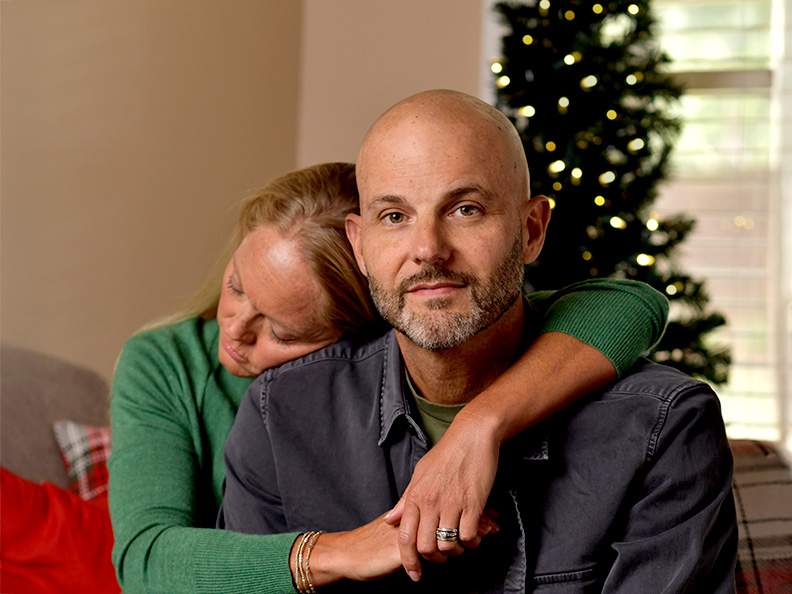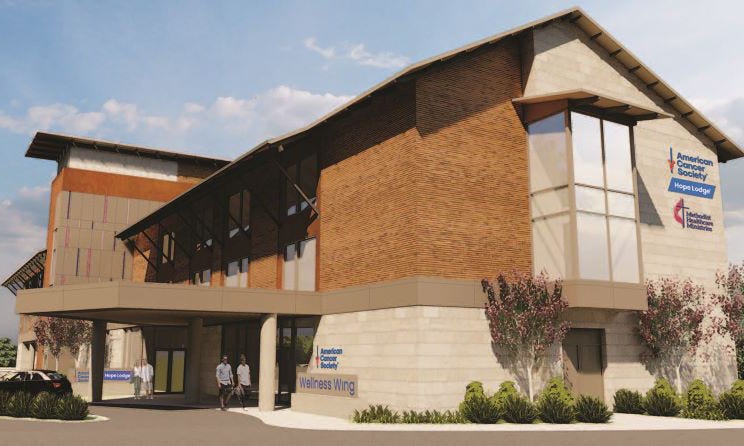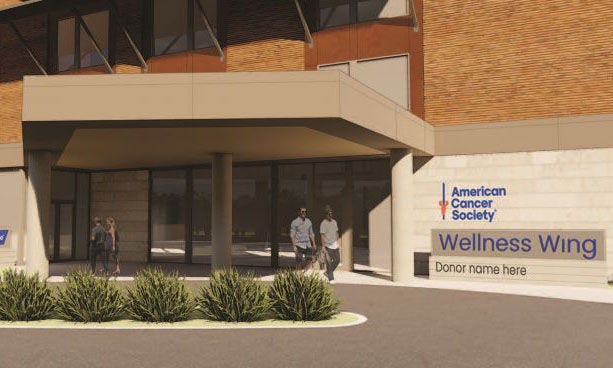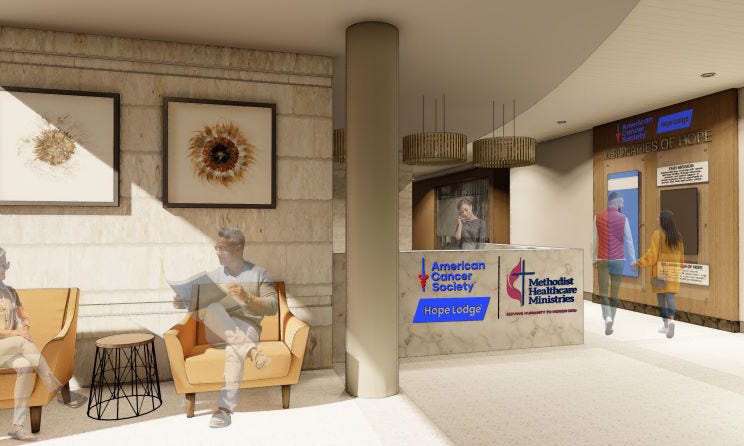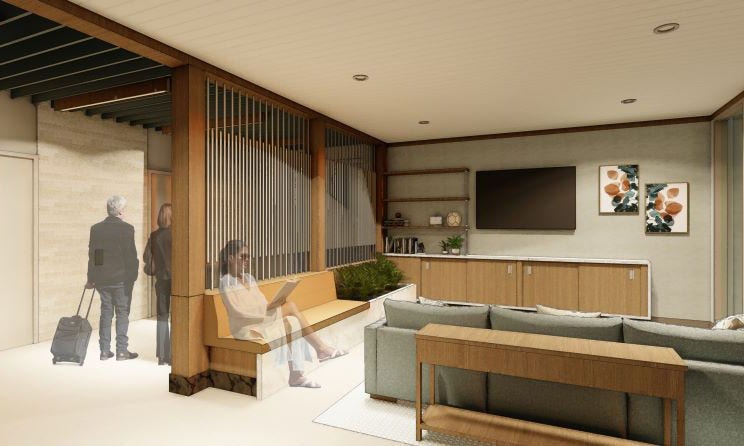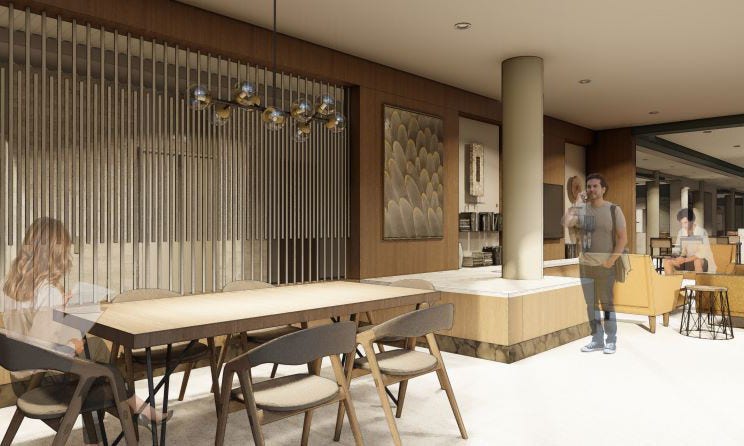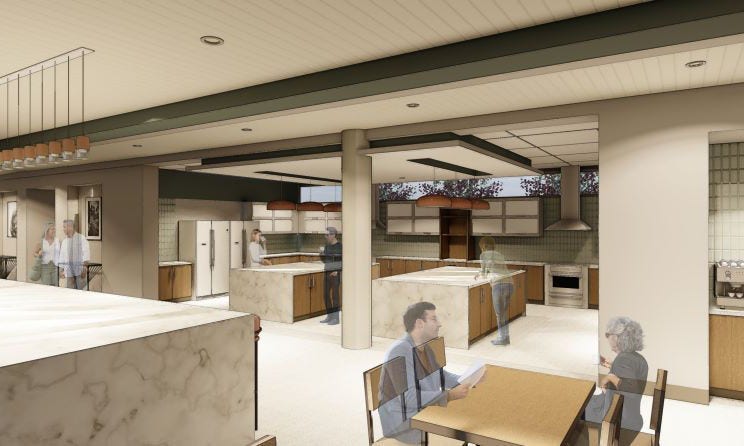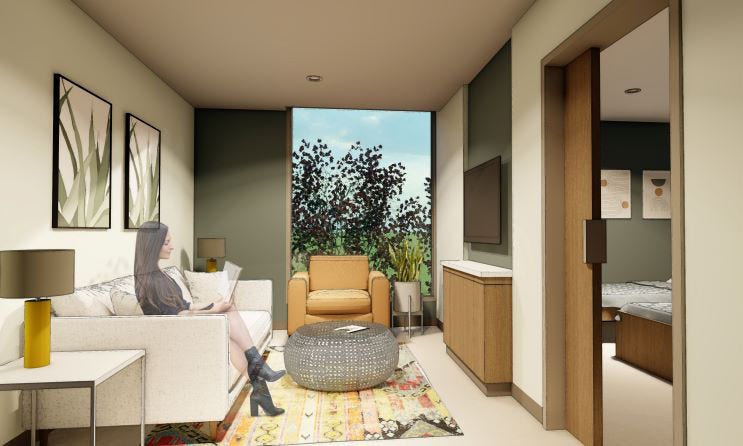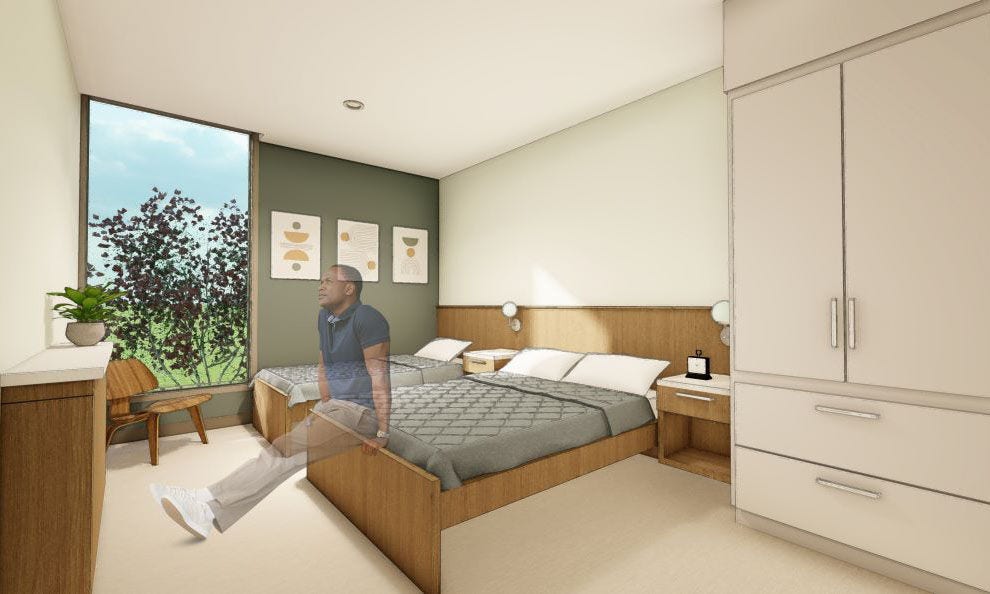Your gift is 100% tax deductible
American Cancer Society Methodist Healthcare Ministries Hope Lodge in San Antonio, TX
- Capital Campaign in Progress
Giving Hope a Home in San Antonio
Facing cancer is hard. Having to travel out of town for treatment can make it even harder. Hope Lodge communities provide free, temporary lodging for people facing cancer and their caregivers when treatment is far from home. Hope Lodge guests don't just find a place to stay - they find a community of support and an emotional connection with others facing the same journey.
The American Cancer Society Hope Lodge network has 31 locations throughout the United States and Puerto Rico, with plans to build the 32nd Hope Lodge community in San Antonio with the launch of a $30 million capital campaign.
About the American Cancer Society Methodist Healthcare Ministries Hope Lodge
The American Cancer Society is deeply grateful to Methodist Healthcare Ministries for their extraordinary gift of $11M to support the capital campaign. Methodist Healthcare Ministries generosity is a shining example of leadership and commitment to improving the lives of people facing cancer.
In recognition of this significant gift, the Hope Lodge community will be named The American Cancer Society Methodist Healthcare Ministries Hope Lodge.
With their transformative contribution and continued partnership, Methodist Healthcare Ministries will help to make a lasting difference in the lives of people with cancer and their families.
Conveniently located near cancer treatment centers in the South Texas Medical Center, the Hope Lodge community in San Antonio will offer 40 private guest suites with the comforts of home at no cost to patients and their families. Transportation to and from local cancer treatment centers will also be provided. The approximately 40,000 square-foot facility will provide up to 14,600 nights of free lodging each year, saving patients and their caregivers an estimated $2 million per year in lodging costs alone.
The Hope Lodge community in San Antonio will offer:
- Private guest suites, each with a bathroom, television, and free Wi-Fi
- Fully equipped community kitchens for food and storage preparation
- Free laundry rooms stocked with supplies
- A fitness room, meditation and reflection spaces, a great room, and a resource library
- Televisions and computer access
- Family rooms with chairs, sofas, and a television
- Outdoor patio and healing garden
- Complimentary on-site parking
- Free daily transportation to and from treatment centers
Campaign Cabinet Members
The American Cancer Society would like to thank the following Hope Lodge San Antonio campaign cabinet members for their continued support and leadership:
Todd Braulick, Campaign Co-Chair, Senior Vice President, Institutional and Private Client Advisor, Bank of America
Linda Dozier, Campaign Co-Chair, CPCM, Contract Management at Lockheed Martin Space
Cas Atchison, President, Core Energy Ventures
Erin Bley, President, Onyx Political Affairs
Kenny Fuller, Retired President, Joeris General Contractors
Kathy Hill, Founder, Kathy Hill PR
Charles Leddy, Managing Partner, Escalera Capital
John Welsh, Retired, Former COO of Lifetime Recovery
Jaime Wesolowski, President/CEO of Methodist Healthcare Ministries of South Texas
If you would like information about volunteering with our campaign cabinet, please contact Andy Sigler.
Partners in Hope
We look to our friends and partners to come together as philanthropic leaders to make the American Cancer Society Methodist Healthcare Ministries Hope Lodge in San Antonio a reality. To continue the conversation about bringing hope to San Antonio, please contact Andy Sigler, Director, Philanthropy, 949‑627‑1325 or Andy Sigler.
Being a Hope Lodge guest is a courtesy extended at the sole discretion of the American Cancer Society. All individuals who meet Hope Lodge eligibility requirements will be welcomed regardless of race, creed, citizenship, disability, gender, color, ethnic heritage, veteran status, economic status, or sexual orientation.
